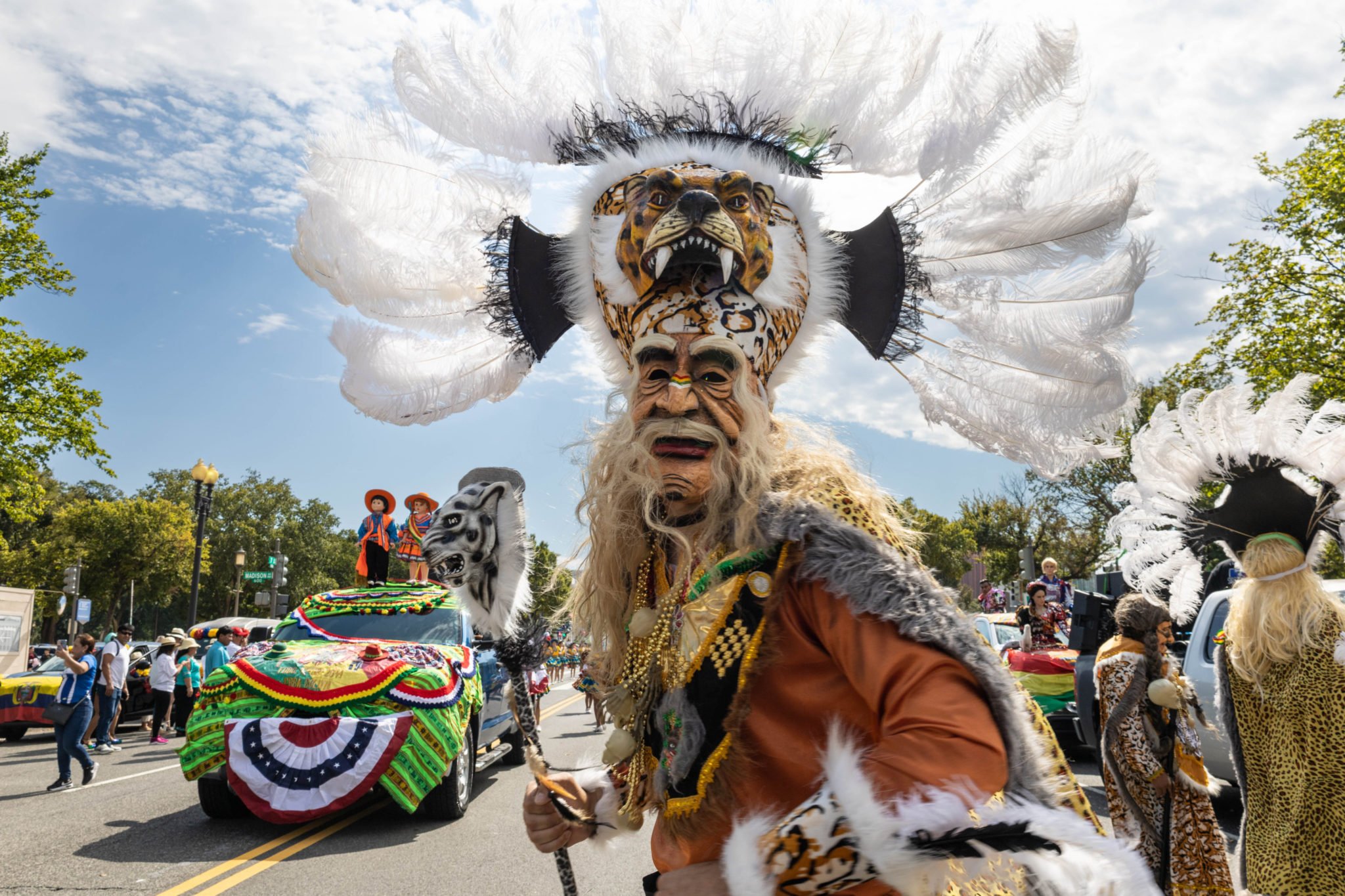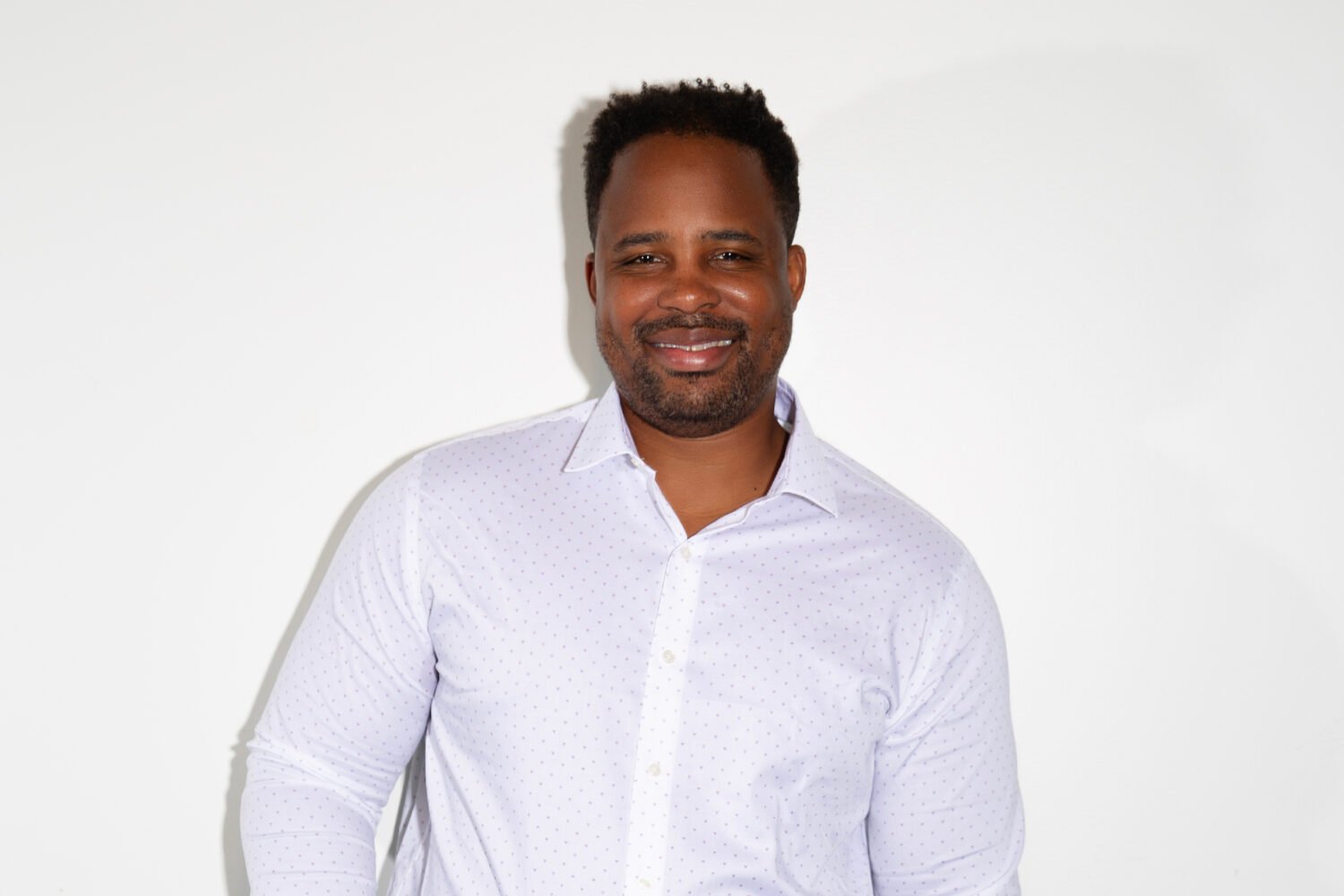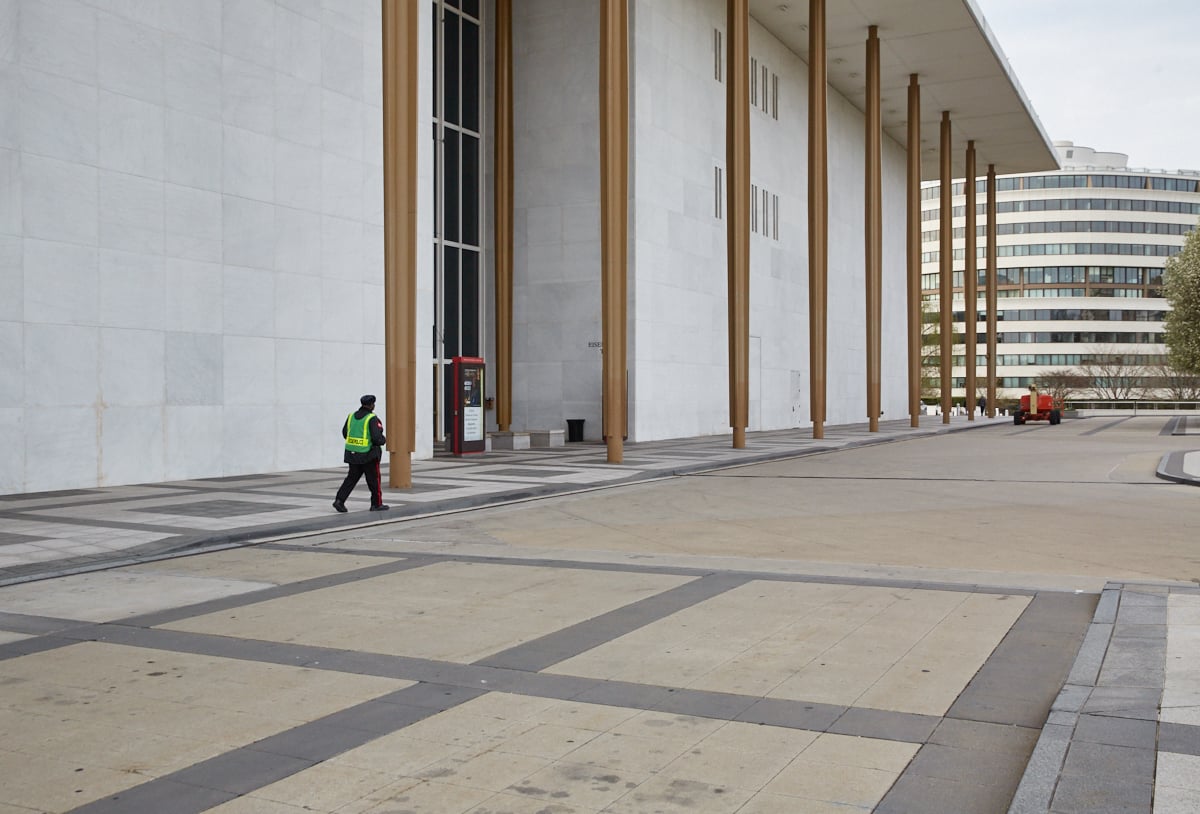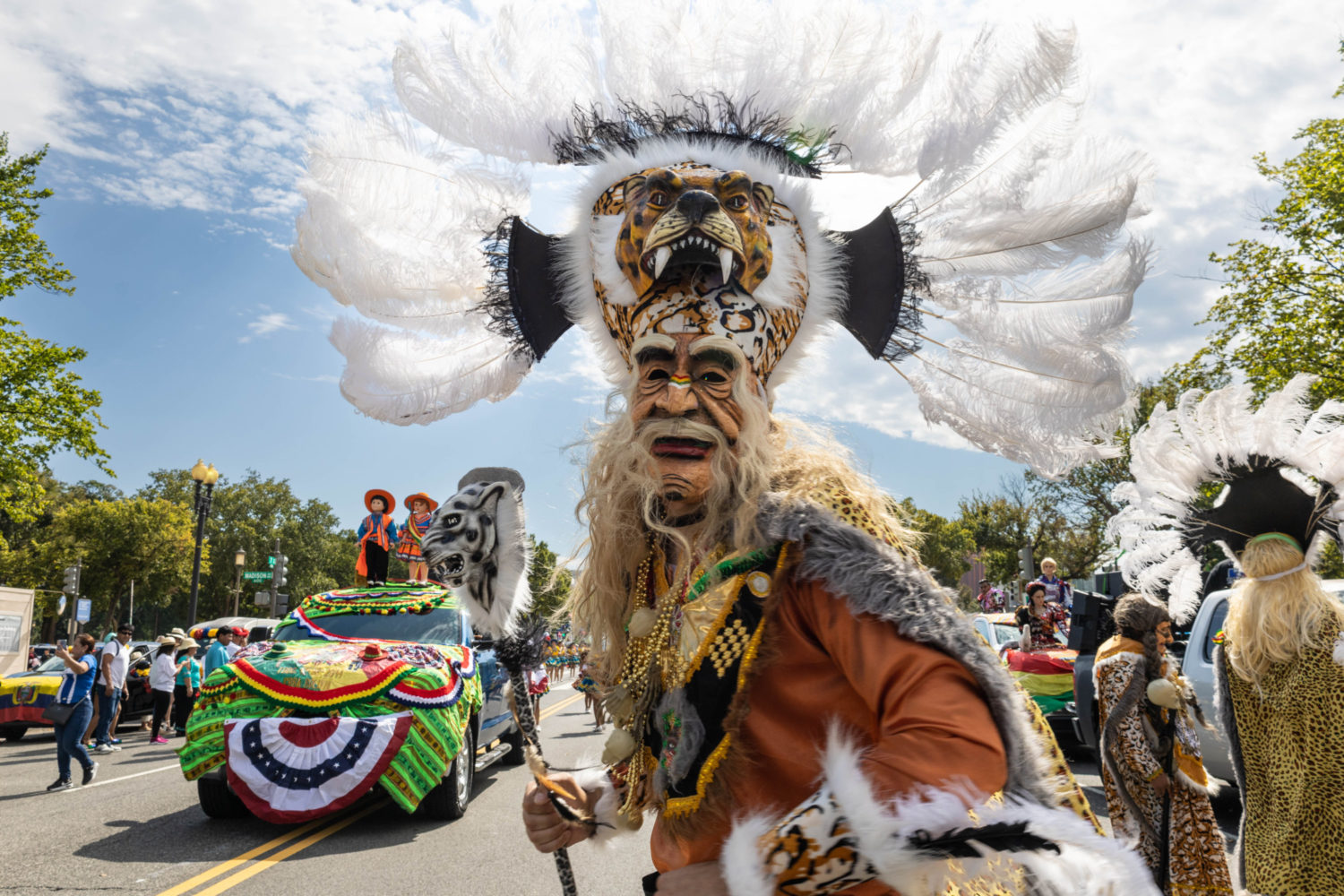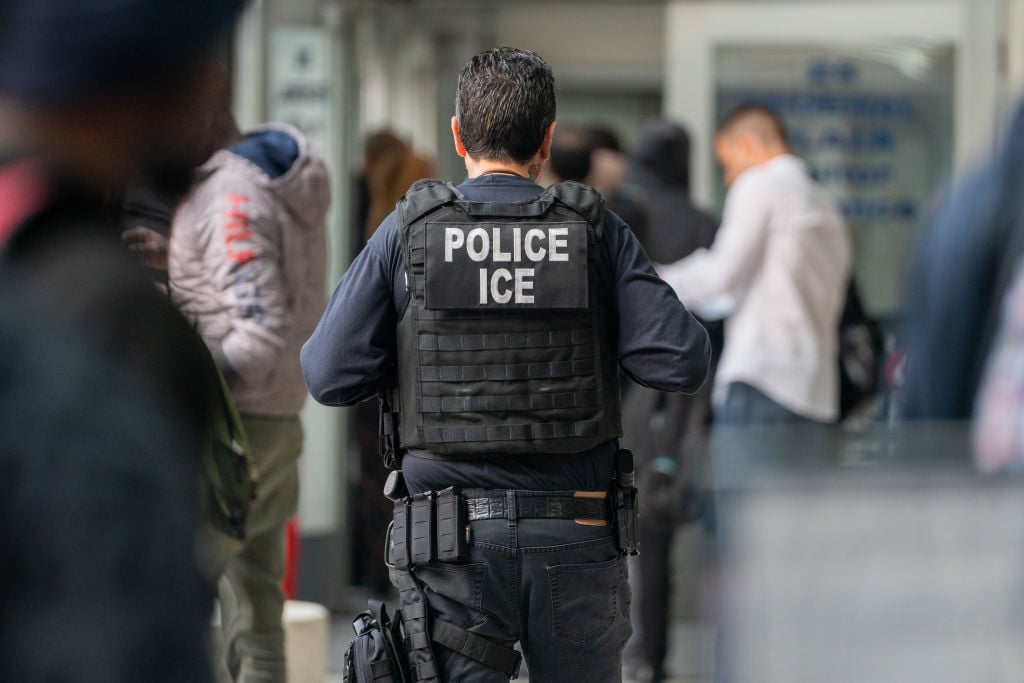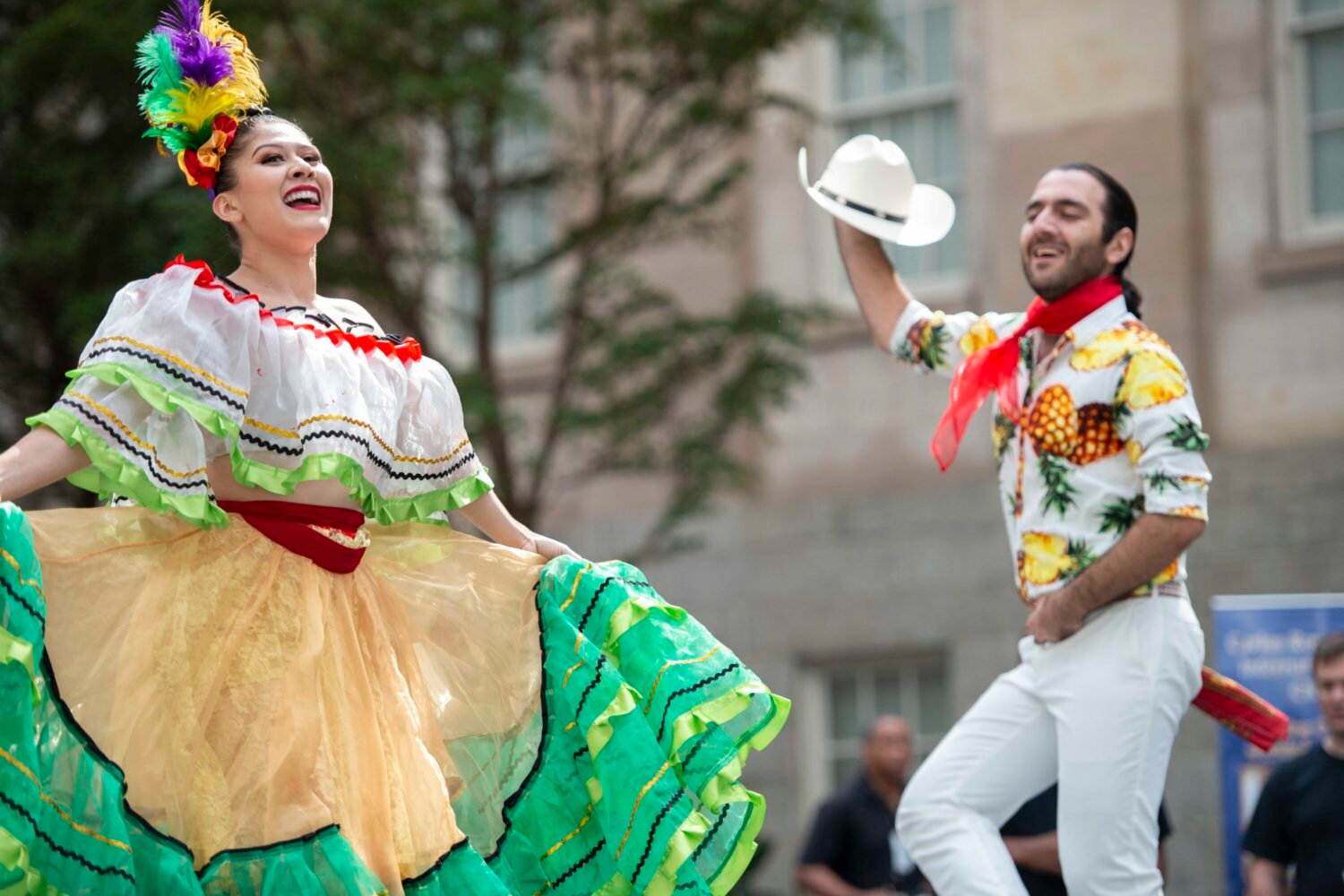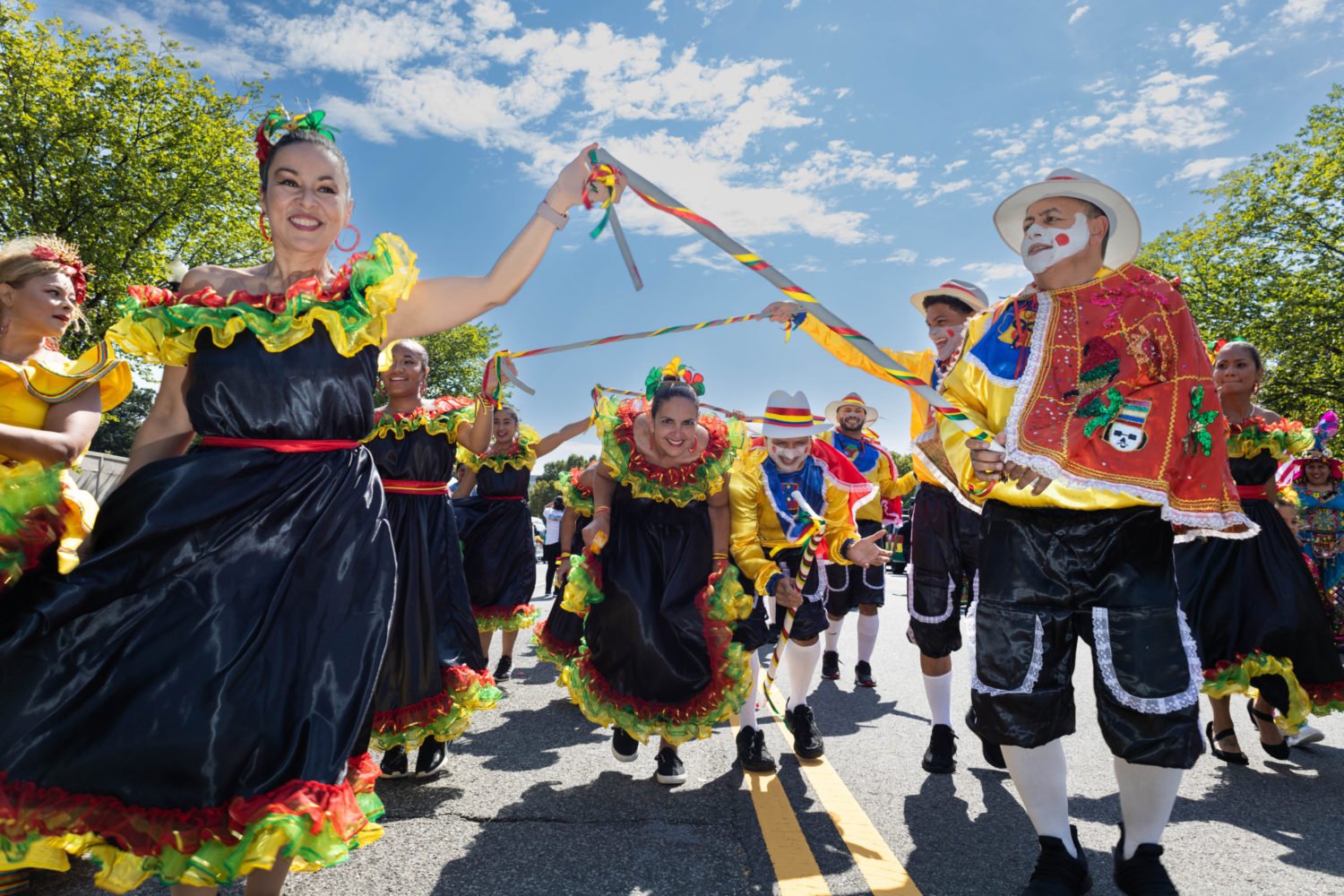As we walk down Pennsylvania Avenue together, Maria Patricia Corrales describes what Fiesta DC, the nation’s largest Hispanic festival, will look like in two weeks time. Corrales, the president of Fiesta DC, points to where a stage will be set up for the annual “Miss Fiesta” beauty pageant, and describes how the smell of frying pupusas will entice passersby. Even as she shares her excitement, she acknowledges that hosting Fiesta DC—this year on September 27 and 28—is a somewhat controversial choice, as other Hispanic festivals in the area have been cancelled.
“I know that [Fiesta DC] might be singled out. I’m risking it. I’m risking every single one that comes in,” Corrales says, referring to immigration agents who may show up. The festival, which usually draws thousands, comes at a time when an increased Immigration and Customs Enforcement presence in the nation’s capital has created a climate of fear and worry among many immigrants.
Fiesta DC is not the only event impacted by the federal law enforcement surge. Hispanic Heritage month, which runs from September 15 to October 15, usually means dozens of festivals and other events throughout the Washington area. This year, many have been modified or cancelled outright due to fear generated by the increase in ICE arrests and detentions.
Earlier this summer, organizers of Festival Salvadoreñisimo, a Salvadorian festival in Gaithersburg that had run for nearly 20 years, decided to postpone its event until next year, in effect cancelling the 2025 festival.
Fredy Diaz, one of the festival organizers, wrote in a statement at the time that “holding a large public event at this time could unintentionally create an opportunity for immigration enforcement actions, and we refuse to put anyone at risk.” When Washingtonian reached out to Salvadoreñisimo, another organizer, Hector Diaz, explained that though many vendors and sponsors were shocked by the cancellation—a food vendor can typically net $5,000 to $7,000 for the daylong festival, he said—they ultimately understood that the festival didn’t “want to harm people.”
Even festivals organized by local governments have been cancelled. For example, the Prince George’s County Department of Parks and Recreation made the decision to cancel its annual Hispanic Festival. Jennifer Munoz, the Latino Media Engagement Specialist at PG County parks, explained that the decision was made after hearing significant concerns from immigrant community members.
In DC, the Mayor’s Office on Latino Affairs (MOLA), quietly cancelled an August 23 AfroLatino Festival, which fell during the federal takeover of DC police, and rescheduled it for September 26. When Washingtonian reached out to MOLA with a list of questions about the decision to cancel certain events, the mayor’s office declined to comment. The office has also modified festivals such as Mi Pequeño El Salvador, switching it from a traditional party held at Lamont Plaza to a set of “small cultural and musical presentations in front of local businesses most affected by recent declines in sales.”
During the federalization of the Metropolitan Police Department by President Trump, local officers assisted ICE in making arrests. Since then, DC has regained control over its police force and Mayor Muriel Bowser reversed course on this collaboration. This week the President threatened to once again assert control over MPD should officers refuse to cooperate with ICE.
Corrales argues that in the face of the fear induced by ICE detainments, honoring traditions and heritage is more important than ever. She’s been organizing Fiesta DC for over a dozen years after having first been “enchanted” by it back when it was held on Columbia Road in Mount Pleasant.
When I asked her if she had a plan should ICE show up at Fiesta DC, she compared the situation to three years ago, when she decided not to cancel the festival despite a severe storm warning. This year, she says, she’s making a similar decision.
“I work in construction. That’s actually my trade and family training,” she says. “When you start something like the footings, you have to put up your walls and you have to continue with the structure.” In her view, ICE is unpredictable and something she has no control over—like that storm three years ago. Though, as with the storm, she’s done her best to prepare.
“The only thing that we have [to do] is to comply with the requirements of an event. That’s what we’re doing,” she says. “We’re [also] very, very careful to specify that in order to win any prize, you have to have the right documents to do that.” She’s also prepared contingency plans should lack of attendance jeopardize the earnings of her vendors: her staff will buy as much food from them as possible and, should turnout be dismal, she’ll waive next year’s attendance fee.
Corrales says that while there have been whispers in the community that she should cancel, she is adamant the party will go on. “I have gone through good days, bad days,” she says. “I’m putting myself in the hands of God. I’m not cancelling. I’m not gonna let the fear win.”

